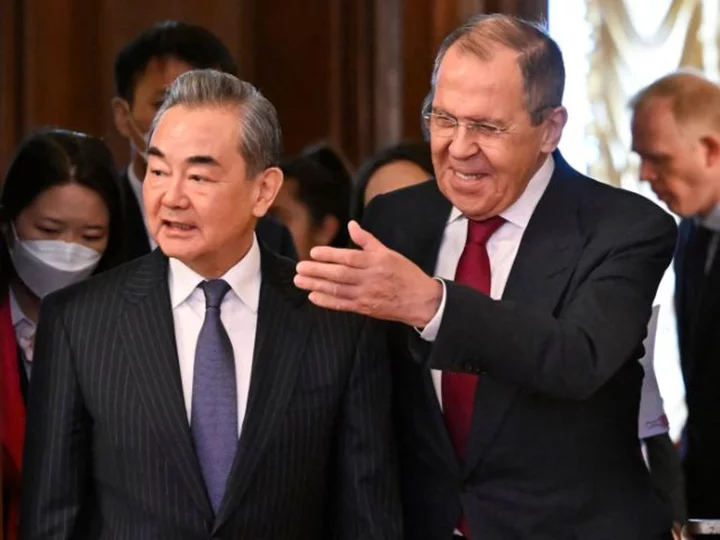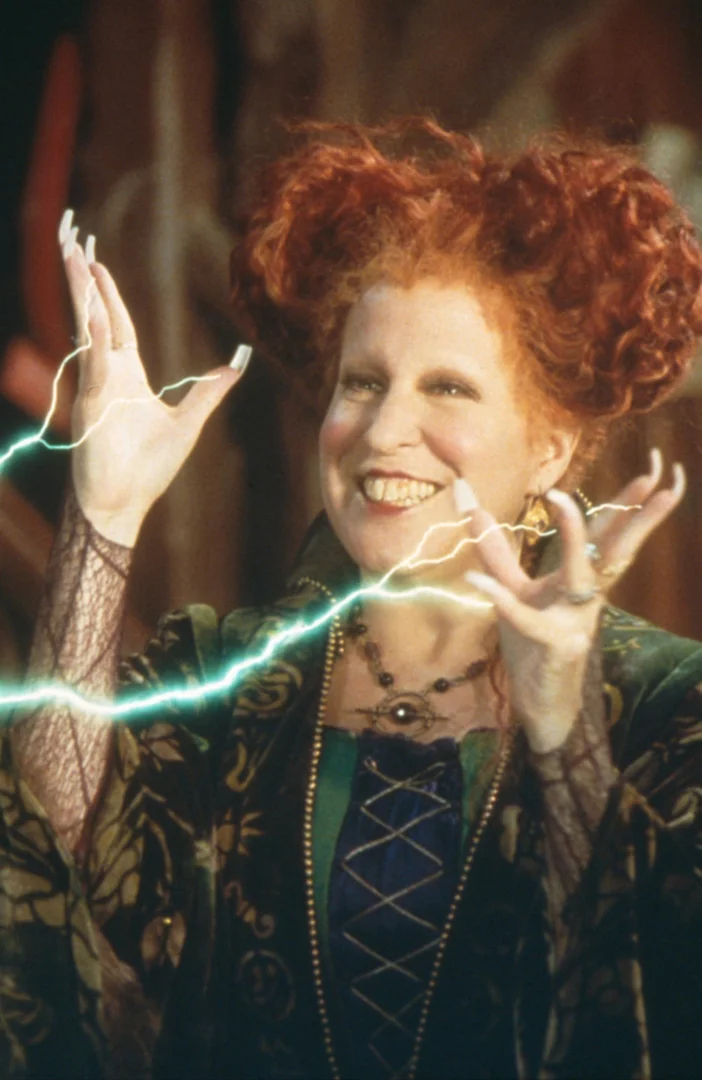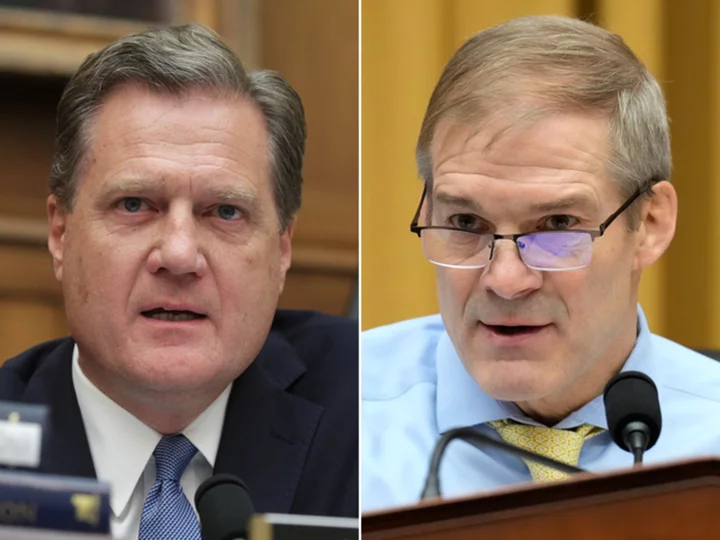China's top diplomat Wang Yi told his Russian counterpart that Beijing remains "impartial" on the war in Ukraine, a day after a Chinese delegation participated in international talks on ending the conflict that included Kyiv, but not Moscow.
In a call Monday, Wang stressed to Russian Foreign Minister Sergei Lavrov that China and Russia are "trustworthy and reliable good friends and partners."
"On the Ukraine crisis, China will uphold an independent and impartial position, sound an objective and rational voice, actively promote peace talks, and strive to seek a political solution on any international multilateral occasion," Wang said, according to a readout of the call released by China's Foreign Ministry.
The call followed two-day talks hosted by Saudi Arabia, where around 40 nations including key Ukraine allies the United States, Britain and Germany, as well as India and a number of Middle Eastern nations, met to discuss the resolution of the conflict, nearly 18 months since Moscow's invasion began.
The group agreed on the importance of international dialogue to find "common ground that will pave the way for peace," according to official Saudi media.
Lavrov "appreciates and welcomes the constructive role played by China" toward a political resolution of the "Ukraine crisis," China's Foreign Ministry said in their readout of Monday's call.
A role for China in peace-making?
Ahead of the talks in Jeddah, Ukraine's Foreign Minister Dmytro Kuleba called China's participation "a super breakthrough and a historic victory."
Ukraine and its Western allies have long expressed hope that China and its leader Xi Jinping, a self-described friend of Russian President Vladimir Putin, could play a role in pushing Moscow toward peace.
Both Xi and Putin see the other as a critical partner in reshaping what they see as an American-led world order hostile to their aims.
China has continued to bolster its economic, diplomatic, and security ties with Russia, despite Putin's invasion of Ukraine, which Beijing has never condemned.
It did not send a delegation to previous international talks in Denmark in June, despite attempting to position itself as a potential peace broker on the conflict in recent months.
China's participation in the Jeddah talks comes as the country has strengthened its ties with Saudi Arabia, and has been ramping up efforts to rekindle its relationship with key economic partners in Europe amid economic woes and ongoing friction with Washington.
Beijing's reputation in Europe has been significantly damaged by its support of Russia.
China's special envoy on Eurasian Affairs Li Hui, who led the delegation, "had extensive contact and communication with all parties on the political settlement of the Ukraine crisis... listened to all sides' opinions and proposals, and further consolidated international consensus," China's foreign ministry told Reuters in a statement Monday. CNN has reached out to the ministry for comment.
China's participation in the talks did not appear to alter its own stance on the conflict, however.
Beijing would continue to strengthen dialogue based on its 12-point position on a political settlement to the crisis, the ministry said following the talks, according to Reuters.
That proposal, which Beijing put forward earlier this year, calls for peace talks to end the conflict. But it departs significantly from Ukraine's own vision for peace in that it urges a ceasefire without also calling for the withdrawal of Russian troops -- an outcome critics say would help Moscow consolidate its illegal wartime gains.
Ukraine and Russia remain publicly committed to prerequisites for direct negotiations that the other side finds unacceptable.
'Work closely and strategically'
China's proposal was also discussed during the Monday call between Wang and Lavrov, according to the Chinese foreign ministry, with its readout quoting Lavrov as saying Russia "highly endorses" it.
The conversation also emphasized their alignment in the international arena more broadly, with Wang calling for both sides to "work closely and strategically" to promote a "multi-polar world" and "democratization of international relations" -- terms used to express their shared vision for a world order where Western nations hold less sway.
An official Russian account of the call published by state-run news agency Tass said the two "once again confirmed unanimity or broad consonance of Moscow and Beijing's approaches to world affairs."
"They noted their rejection of the Western bloc's confrontational policy toward Russia and China, its attempts to contain their development by means of sanctions and other illegitimate methods," Tass said.
The call was also the first between the two since Wang was reappointed China's foreign minister following the shock ouster of his successor Qin Gang, who was suddenly replaced without explanation in late July after only six months in the role.
Wang was previously foreign minister for roughly a decade before being promoted to lead the ruling Chinese Communist Party's foreign affairs arm late last year. He now holds both posts.
Lavrov congratulated his Chinese counterpart on his appointment and "wished him great success in his new demanding role," Tass said.









